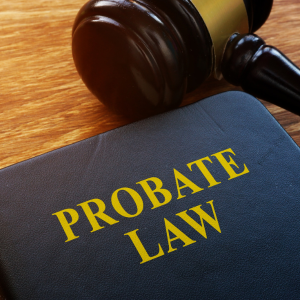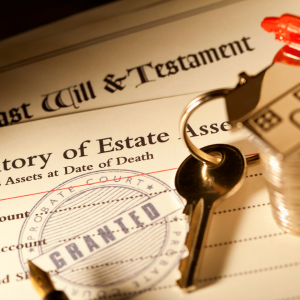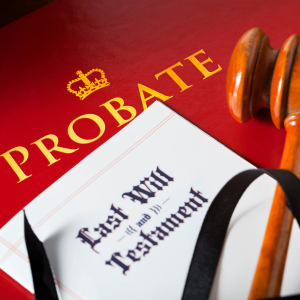
Understanding The Process Of Selling A House In Probate In Illinois
Selling a house in probate can be complex and overwhelming, particularly in Illinois. To successfully sell a probate house, you must first understand the steps involved.
The first step is determining if the property is subject to probate court proceedings. This is usually the case if the deceased owner does not have a will or their will requires validation by the court. Once this is established, the court must appoint an executor or administrator to oversee the property sale.
In Illinois, the process typically takes 6-9 months. During this time, it is critical to maintain and repair the property to attract potential buyers.
After settling all legal matters and finding a buyer, a court petition must be filed to approve the sale. This includes preparing an appraisal of the property’s value and obtaining consent from all beneficiaries.
Finally, once the court has approved everything, the sale can proceed, and any proceeds will be distributed among the beneficiaries per their inheritance rights as established by law or stated in the deceased owner’s will.
What You Need To Know Before Selling A House In Probate In Illinois

It can be difficult to sell a house in probate, especially in Illinois. That being said, there are steps and rules for selling a probate house in this state.
Before you do anything else, you should know that selling a probate house is not the same as selling any other property. Before the house can be sold, it has to go through the legal probate process.
Additionally, the court may have set specific rules and requirements for the sale process. Make sure you have all the paperwork and records you need. Any missing or incorrect information can slow down or even stop the sale.
Also, hiring an experienced real estate agent specializing in probate sales can make the process much easier and faster. By learning about these important things, you can easily get through the probate sale of your Illinois property and find out how much it’s worth.
The Legalities Of Selling A House In Probate In Illinois
Selling a house in probate in Illinois requires careful consideration of various legal requirements. First, the executor or administrator of the estate must obtain a Letter of Office from the court, which authorizes them to sell the property.
Filing a petition and providing relevant documents, such as a death certificate and will, is typical. Furthermore, all interested parties, such as beneficiaries and creditors, must be notified of the sale and allowed to raise any concerns.
Once these steps are complete, the sale can proceed according to standard real estate procedures. Consult with an attorney familiar with Illinois probate laws to ensure all legal requirements are met throughout the selling process.
Navigating The Probate Court System For Selling A House In Illinois

Selling a probate house in Illinois can be challenging after a loved one’s death. However, understanding and navigating the probate court system makes this task much easier.
In Illinois, the probate court oversees the distribution of the deceased’s assets, including real estate. This means that before the probate house can be sold, it must go through the probate process.
The process involves filing a petition, notifying beneficiaries and creditors, and obtaining court approval to sell the property. Adhering to all court-mandated steps and timelines is critical to ensuring a smooth sale of the probate house in Illinois.
Working with an experienced attorney and staying organized can help sell a probate house in Illinois efficiently and effectively.
Steps To Take When Selling A House In Probate In Illinois
Selling a house in probate can be challenging, particularly in Illinois. The right knowledge and approach can be a smooth and successful transaction.
First, determine if you can sell the property as an estate executor or administrator. Next, determine the house’s value and gather necessary documents, such as a death certificate and letters of testamentary.
Next is listing the property for sale and marketing it to buyers. Communicating with all parties and seeking advice from an Illinois probate sales attorney or real estate agent is crucial.
Remember to close the sale and distribute funds to beneficiaries after accepting an offer. To sell a probate house in Illinois, follow these steps for ease and efficiency.
Tips For Successfully Selling A House In Probate In Illinois

Selling a house in probate can be challenging, particularly in Illinois. However, with the right tips and strategies, it can be simple.
To sell a probate house in Illinois, first understand the legal requirements, such as obtaining court approval and notifying interested parties. Determining a fair price for the property based on its current market value is also critical.
Hiring a reputable real estate agent with probate experience can simplify the process. Additionally, making necessary repairs and staging the home can increase its appeal to potential buyers.
Effective communication and transparency among all parties are essential for a successful probate sale in Illinois.
The Role Of An Executor When Selling A House In Probate In Illinois
An executor plays an important role when selling a probate house in Illinois. The executor manages the estate and ensures that all assets, including the home, are distributed according to the deceased’s wishes.
To sell a probate house in Illinois, the executor must obtain court approval and adhere to state-specific procedures. This includes getting a certified property appraisal, notifying all interested parties, such as beneficiaries and creditors, and obtaining any required approvals or waivers.
The executor must act in the estate’s best interests by selling the property at a fair market value to maximize its distribution among beneficiaries. Executors, due to their knowledge and expertise in estate management, play an important role in the easy sale of a probate house in Illinois.
Handling Debts And Liabilities When Selling A House In Probate

What happens to any outstanding debts or liabilities when an Illinois probate house is sold? That’s an important consideration. For example, the decedent may have left behind mortgages or property taxes that have not been paid.
These concerns can impact the sale’s value and profitability, so fixing them before proceeding is essential. It is recommended that you work closely with an experienced probate attorney to ensure that all debts and liabilities are handled and settled correctly. They can help navigate this process.
In addition to avoiding future legal issues, this will simplify the selling process.
Maximizing Profit: Strategies For Selling A House In Probate
Selling a house in probate can be a complex and emotional process, but the ultimate goal remains to maximize profit. As a result, several strategies can assist you in selling a probate house in Illinois while ensuring you get the most value for your property.
Conduct market research and set a realistic asking price based on current market conditions. Furthermore, investing in necessary repairs or renovations can significantly increase the property’s overall value.
Furthermore, hiring professional real estate agents with experience dealing with probate properties can help you attract qualified buyers and negotiate favorable sale terms. Remember to advertise the property through multiple channels to reach a larger audience.
Implementing these strategies can help unlock the value of a probate house in Illinois without sacrificing profits.
Marketing Your Inherited Property: How To Attract Buyers

Selling an Illinois probate house, especially if you inherited it, can be difficult. With proper marketing, you can attract buyers and maximize the value of your inherited property.
Focus on the house’s unique features, history, and convenient Illinois location. Social media and online listing sites can also help you reach buyers.
A real estate agent with probate sales experience can also advise and connect buyers. Market your probate house to show its benefits and potential, making selling easier and more profitable.
Choosing The Right Real Estate Agent For Selling A House In Probate
Selling a probate property in Illinois can be overwhelming, especially if you’re unfamiliar with the process. However, choosing the right real estate agent can significantly impact your success and allow you to maximize the value of your property.
When choosing an agent, look for one with specific experience in probate sales. They should also thoroughly understand local market conditions and pricing strategies.
Equally important are their communication skills and ability to handle complex legal requirements required for a smooth and efficient transaction. By selecting the right agent, you can confidently sell your probate home in Illinois and receive the highest possible return.
Negotiating Offers On A House Being Sold Through Probate

Negotiating offers can be an important step when selling a home through probate in Illinois. As executor of the estate, you must ensure that the property is sold for the highest possible price.
This entails carefully considering each offer and strategically negotiating with prospective buyers. It’s important to remember that buyers may try to take advantage of the situation by making lowball offers, so you should understand the market and the property’s value.
Furthermore, having an experienced real estate agent can help you navigate negotiations and get the best price for the probate house.
Understanding Tax Implications When Selling An Inherited Property
When selling a probate house in Illinois, it is critical to understand the tax implications. As an inherited property, specific taxes may be considered and paid before the sale can be completed smoothly.
Capital gains taxes may also need to be factored in. It is critical to consult with a tax professional or accountant to fully comprehend the potential tax consequences of selling an inherited property.
Keeping detailed records and documentation throughout the selling process can also help to avoid potential IRS issues. By understanding the tax implications and taking the necessary steps, you can easily sell a probate house in Illinois and avoid unexpected financial burdens.
Common Mistakes To Avoid When Selling A House In Probate

Selling a house in probate can be difficult and time-consuming, particularly in Illinois. However, if approached correctly, it can be a profitable transaction.
Unfortunately, many people make common errors that can cost them time, money, and stress. These mistakes include failing to value the property properly, keeping up with necessary repairs and maintenance, seeking professional advice from an experienced probate lawyer or real estate agent, and rushing into a sale before considering all options.
By avoiding these mistakes and following the steps outlined in this article, you can easily sell your probate house in Illinois and realize its true value.
How To Prepare The Property For Sale During The Probate Process
If you want to sell a probate house in Illinois, you must ensure it is properly prepared. This means making any necessary repairs or renovations, cleaning and decluttering the space, and maybe even staging it to make it more appealing to buyers.
It’s also important to research the area’s current real estate market and set a fair price for the home. Working with a reputable real estate agent who has sold probate properties before can also speed up the process and ensure all legal requirements are met.
These steps will help you get the most money for your probate house and make the sale process go as smoothly as possible during this tough time.
Timing Is Everything: Best Time To Sell An Inherited Property

Selling a probate house in Illinois can be difficult, particularly in terms of timing. Knowing the best time to sell an inherited property is critical for determining its worth.
In general, it is advisable to put the house on the market as soon as the probate process is completed. This allows potential buyers enough time to view the property and make offers before it reemerges in legal proceedings.
Furthermore, selling during peak real estate seasons, such as spring or summer, can attract more buyers and possibly result in a higher sale price. However, each situation is different, and consulting with a real estate agent or attorney can help you determine the best time to sell a probate house in Illinois.
Can You Sell A House During Probate In Illinois?
If selling a probate home in Illinois becomes necessary, you might wonder if the process is even possible.
Fortunately, a house can be sold in Illinois while going through probate.
Probate house sales can be easy and seamless if you have the right information and direction, even though the process can appear overwhelming and difficult.
In Illinois, you can easily sell your inherited property and realize its full value by being aware of the procedures and collaborating with experts specializing in probate real estate sales.
How Long Does A House Stay In Probate In Illinois?

One of the most common questions people have about the probate process in Illinois is how long it will take to sell a probate house.
In general, the length of time a house remains in probate in Illinois varies depending on several factors, including the complexity of the estate, any potential heir disputes, and whether or not the executor was properly appointed.
In Illinois, the average time it takes to sell a house during probate ranges between six months and a year.
However, with proper planning and guidance from experienced professionals, this process can be streamlined, and a probate house in Illinois can be sold easily.
What Assets Are Exempt From Probate In Illinois?
Knowing which assets are exempt from probate is crucial when selling an Illinois probate house. This state exempts joint tenancy properties, life insurance proceeds, retirement accounts, and trust-funded property from probate.
We can transfer them directly to the designated beneficiaries without the lengthy and often complex probate process. However, estate taxes and other legal obligations may apply to exempt assets.
Thus, it is best to consult a knowledgeable attorney when selling an Illinois probate house. You can streamline the sale of your loved one’s estate by understanding these exemptions and seeking professional help.
This information applies to Illinois and its cities, including Chicago, Elmhurst, and Joliet. For assistance or questions, please call us at (773) 663-4505. You can also visit our website at Home Sales Chicagoland for more details.
Resources To Help Sell Your House in Illinois
| [ | |||||
| “ | ] | “ | ] |


